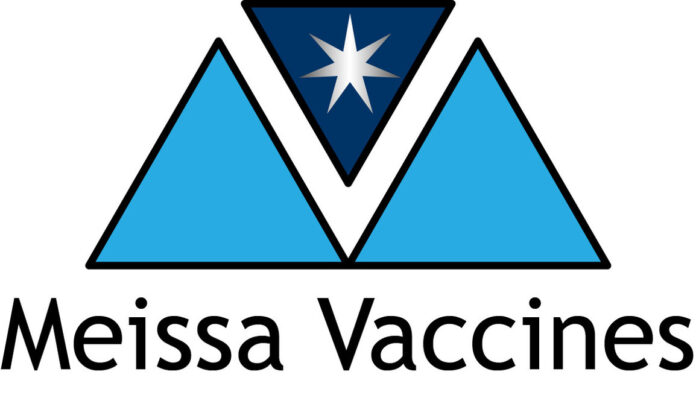REDWOOD CITY, Calif.– Meissa Vaccines (“Meissa”), a clinical-stage biotechnology company developing vaccines to prevent serious viral respiratory infections, announced today positive preliminary data from the interim analysis of 49 patients in a Phase 1 clinical study of MV-014-212, the company’s intranasal recombinant live attenuated COVID-19 vaccine (ClinicalTrials.gov Identifier: NCT04798001). The data show that a single adjuvant-free dose of MV-014-212 stimulated a strong nasal IgA antibody response in seropositive and seronegative adults. Doses ranged from 103 to 105 PFU, with the 105 PFU dose inducing nasal IgA antibody levels that resembled natural immunity to SARS-CoV-2. In addition, safety data at all dose levels indicate MV-014-212 is highly attenuated, with no infectious vaccine virus recovered from any participant and no serious adverse events reported to date. This preliminary data will be presented at the World Vaccine & Immunotherapy Congress taking place November 30th to December 2nd. The Phase 1 clinical study is still enrolling participants, and full results are expected to be presented in a scientific forum next year.
“The preliminary clinical data indicate a single, adjuvant-free, needle-free dose of Meissa’s COVID-19 intranasal vaccine can stimulate a nasal IgA antibody response similar to that seen after SARS-CoV-2 infection, with an important difference – safety,” said Robert Walker, M.D., Chief Medical Officer of Meissa Vaccines. “The initial safety data from this trial combined with our preclinical COVID-19 data and clinical data from Meissa’s RSV vaccine candidate, which was also built on the AttenuBlock platform, support continued clinical development of MV-014-212. We will continue to advance Meissa’s COVID-19 intranasal vaccine in this Phase 1 clinical trial in adults, and we plan to evaluate it as a booster to complement injectable vaccines and initiate a Phase 1 pediatric study next year.”
While circulating IgG antibodies are important for preventing serious lung disease, nasal IgA antibodies are essential for blocking infection and transmission of respiratory viruses. injectable vaccines typically induce only serum (IgG) antibodies that circulate in the blood, whereas intranasal vaccines also generate mucosal (IgA) antibodies in the nasal cavity. Live attenuated vaccines have historically been the most effective intranasal vaccines, but because coronaviruses are genetically unstable, a conventional live attenuated strategy is not recommended for SARS-CoV-2. To overcome this challenge, MV-014-212 was built on the company’s recombinant RSV AttenuBlock platform. This platform incorporates 10 years of research and development employing rational and precise codon deoptimization and other genetic strategies to produce a RSV vaccine backbone that provides appropriate attenuation, genetic stability, and, for COVID-19, optimized immunity directed against the spike protein of SARS-CoV-2.
“We need an intranasal COVID-19 vaccine to block transmission, prevent infections, and control SARS-CoV-2 spread and variants, and a live attenuated vaccine is the best approach for intranasal delivery,” said Martin Moore, Ph.D., CEO and Cofounder of Meissa Vaccines. “Conventional live attenuated vaccine approaches have always had to sacrifice immunogenicity to reduce virulence. With our AttenuBlock platform, we’ve unlinked them and can separately turn up immunogenicity and turn down virulence to create live attenuated vaccines that are designed to stimulate a natural immune response and be safe for all ages, from adults to infants.”
Previously reported preclinical data demonstrate that Meissa’s intranasal COVID-19 vaccine generated both mucosal and systemic antibodies and was highly protective against wild-type SARS-CoV-2 challenge in nonhuman primates (NHPs). Serum antibodies were able to neutralize wild-type SARS-CoV-2, B.1.351 (Beta, South Africa), and B.1.1.7 (Alpha, UK). Additional data showed that MV-014-212 has a stable genotype in vitro and in vivo.
Meissa’s intranasal RSV vaccine, MV-012-968, which was also built on the company’s AttenuBlock platform, is currently in a Phase 1c study in infants and young children. Data from a completed Phase 1b study in RSV-seropositive participants between the ages of 15 and 59 months showed that a single intranasal dose of either 104 or 105 PFU of MV-012-968 was well-tolerated and did not result in detectable shed vaccine virus, indicating appropriate attenuation (ClinicalTrials.gov Identifier NCT04444284).


